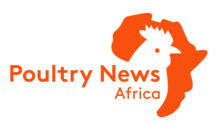The South African Poultry Association (SAPA) has strongly criticised the government for not fulfilling its commitments under the Poultry Sector Master Plan (PSMP). Launched six years ago, this initiative aimed to rescue the country’s broiler value chain from collapse after experiencing prolonged issues with illegal import dumping. While the plan initially generated optimism and some progress, Sapa now argues that the government’s failure to uphold its promises has left the sector frustrated and struggling to advance.
The PSMP was signed in November 2019 as a public-private partnership to transform and grow the poultry sector. Its goals were clear: restore trade measures to stop the influx of dumped imports, boost domestic demand and production, expand chicken exports into new markets, and promote transformation by integrating more black-owned producers into the industry. It also established a framework for monitoring and accountability through an industry-government oversight council, setting targets for delivery by 2030. At the time, the plan was seen as a blueprint for strengthening South Africa’s food security, creating employment, and opening the door for the country’s poultry products to compete internationally.
According to Sapa’s Broiler Organisation CEO, Izaak Breitenbach, the poultry industry acted swiftly after the signing of the master plan. More than R2.2 billion was committed to investments in new facilities, surpassing the initial target of R1.5 billion. Major producers expanded operations, created jobs, and brought small-scale farmers into the value chain through contract farming agreements. Duties and trade remedies, supported by global disruptions such as bird flu outbreaks in other regions, helped reduce the volume of dumped imports, providing some relief for local producers. Breitenbach noted that these achievements demonstrated the plan’s potential to bring real transformation.
However, he explained that progress slowed significantly after the last national elections. The PSMP was relegated to the responsibility of deputy ministers, and with that shift, the project began to lose its momentum. While government officials have repeatedly pledged to support the second phase of the plan, Breitenbach says these commitments remain largely unfulfilled. Announcements in 2024 and 2025, including promises by Agriculture Minister John Steenhuisen, highlighted plans for new financial support, improved veterinary surveillance, modernised cold-chain facilities, and assistance for emerging farmers. The government also promised to roll out mass bird flu vaccination campaigns. Yet, Breitenbach argued that very little of this has materialised in practice, leaving the sector in limbo.
The biggest disappointment, he stressed, has been the failure to unlock export markets. Poultry producers have invested heavily in modern cold-chain systems and processing facilities, but without updated veterinary protocols and trade agreements, they cannot access lucrative markets in Europe, the Middle East, or Asia. Veterinary laboratories, which are critical for issuing internationally recognised certificates, remain underfunded and understaffed. Industry players have gone as far as to say that “exports die in the lab,” as producers are ready to supply but are blocked by bureaucracy and poor systems.
This situation has wider implications beyond the companies themselves. Every delay in opening export markets, Breitenbach said, means lost opportunities for contract growers, rural workers, and black-owned enterprises that depend on poultry for their livelihoods. The sector has demonstrated its willingness to invest and grow, but without decisive government action, he warned, the master plan risks becoming a wasted opportunity.
Breitenbach concluded by urging the government to take immediate and measurable action. He said this means publishing time-bound targets, fast-tracking export negotiations, strengthening veterinary services, and ensuring that financing is accessible to small and emerging farmers. Only by moving beyond promises to delivery can the PSMP live up to its vision of building a stronger, more inclusive, and globally competitive poultry sector.



